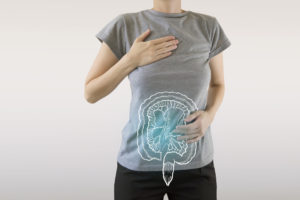
I know you’ve heard it before: fruits and vegetables are the superstars of virtually any diet. It’s true, though. Most of them are “superfoods” whether or not they all get recognized as such.
And new research is showing that despite some standard advice, eating more fruits and vegetables and cutting down on fat could help tame mild ulcerative colitis (UC) in remission.
But first, why are some ulcerative colitis patients told to cut back on fruits and vegetables?
It mainly has to do with fiber, a non-digestible compound found in fruits, vegetables, and whole grains. Sometimes fiber can irritate the digestive system and worsen a UC flare-up. But boosting fiber intake may have a more long-term effect, limiting leaky gut by bringing more bulk to stool.
A new study published in Clinical Gastroenterology and Hepatology shows that when people with mild UC ate more fruits and vegetables and cut dietary fat, they had lower markers of inflammation and signs of a more balanced bacterial population in the gastrointestinal tract.
The study was quite small, looking at only 17 people with mild UC. One group was told to eat a diet higher in fruits and vegetables than the Standard American Diet while also getting roughly 35-40% of calories from fat.
Another group was given a high-fiber diet rich in fruit and vegetables, but limited fat intake of only 10% of total daily calories.
Each group followed their diet for a month, then switched for another month. The low-fat, high-fiber diet seemed to improve symptoms in both groups.
Researcher Dr. Maria Abreu made a note of how surprised she was by both the results of the study and the poor quality of the patient’s baseline diets.
There are no known cures for irritable bowel diseases like ulcerative colitis or Crohn’s disease. However, dietary approaches might help some people manage symptoms.
Other strategies include identifying potential problem foods, eating a healthy and balanced diet, and working with a professional to establish a workable treatment plan.